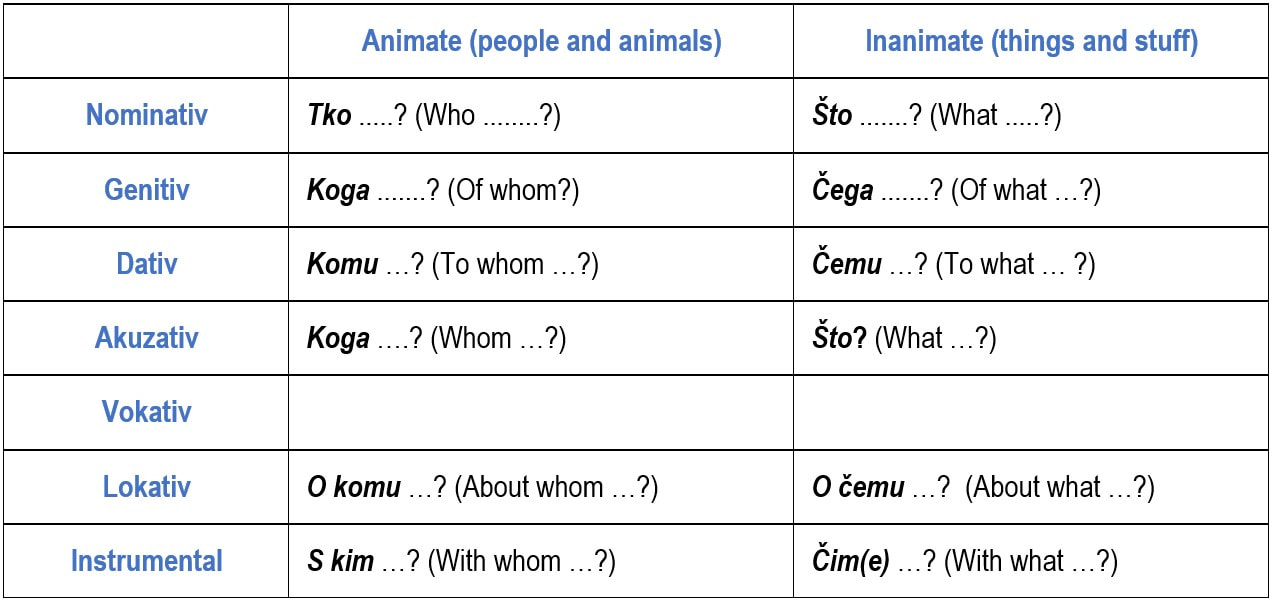Croatian grammar reference section/Nouns #001Questions that define the cases of nouns
If you have been learning Croatian for more than 10 minutes, you will know that the language uses each noun in different “cases” (in both singular and plural), depending upon the role of the noun in various sentences.
In Croatian the noun “house” can be kuća, kuće, kući, kuću, or kućom, depending upon the role of “house” in any sentence. For example, in the sentence “This house is big." (Ova kuća je velika) the noun is in a different case (nominative) than it is in the sentence “I see a house.” (Vidim kuću) in which the noun is in accusative case, or “We are talking about a house.” (Razgovaramo o kući) where the noun is in locative case. Similarly, the plural noun "houses" can be kuće, kuća, or kućama, depending on its case in any sentence. A table that lists the different endings for nouns in different cases (for masculine, feminine, and neuter nouns, both singular and plural) is shown in another post in this reference section Declensions of nouns. The importance of “tuning in” to the endings of nouns is discussed in the post Grammar #002: Padeži and the endings of nouns. Other types of words that change according to the case in a sentence are adjectives (see post Declension of adjectives) and pronouns (see post Declension of pronouns).
Hey, English speakers, don’t think that the Croatian language is strange in this way: all languages have cases. Croatians indicate the case of a noun by changing the word – usually by changing the ending – while in English we indicate the case by use of prepositions such as in, on, to, for, of, and about, rather than change the word.
Now before I go on with the theme of this post, you should be aware that my teacher Mateja (at SpeakCro) is of the opinion that the following table of questions is counterproductive to beginning students. And that was, and continues to be, my experience. But you will almost certainly encounter this table of questions in some grammar book or website, so you might find it useful to access it here. The source of these questions, and how these questions are used to define case, is discussed in another post Grammar #005: Declensions of Tko? and Što?
Footnote
If a sentence(or phrase) can be seen as an answer to one of the case-defining questions, then we know the case of the noun in the sentence. For example, the sentence Misli o Ivanu (He is thinking about Ivan) is a response to the question O komu misli? (About whom is he thinking?). Then we know that the noun Ivan is in locative case, and takes the form Ivanu. That is OK, but there are also other reasons that determine the case of nouns in sentences. For example: Pas je na stolu. (The dog is on the table). In this sentence, the noun stol is also in the locative case (stolu), but it is not derived from an answer to O čega …? Rather the sentence is an answer to the question Gdje je pas? There are many more examples of cases that are defined according to reasons other than the case-defining criteria defined above.
0 Comments
Leave a Reply. |
